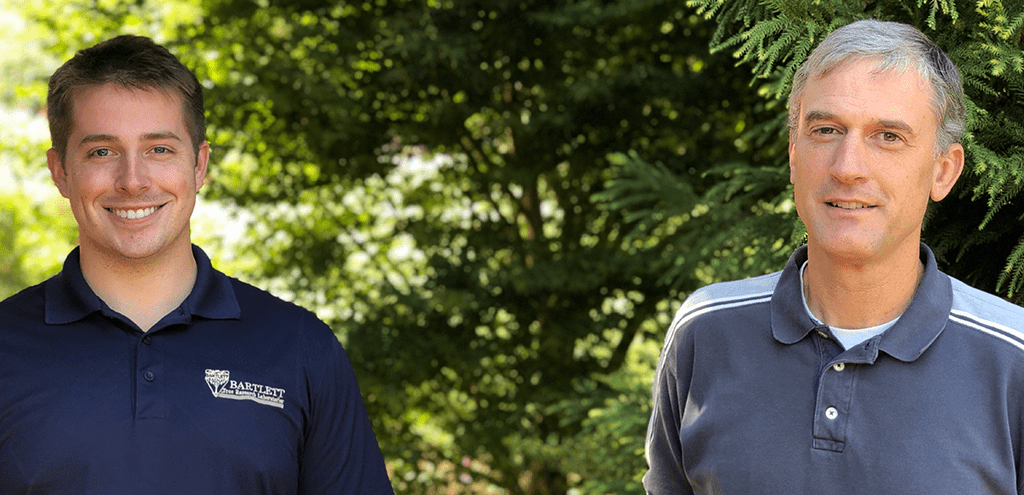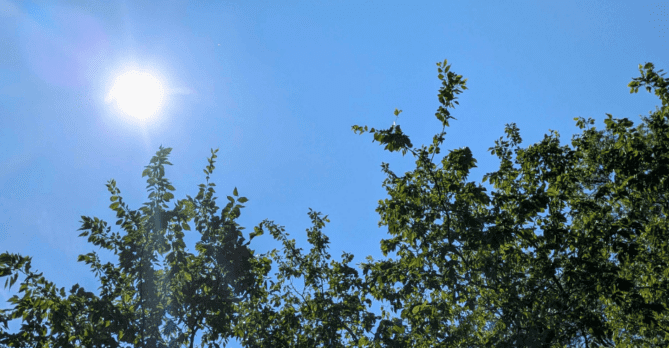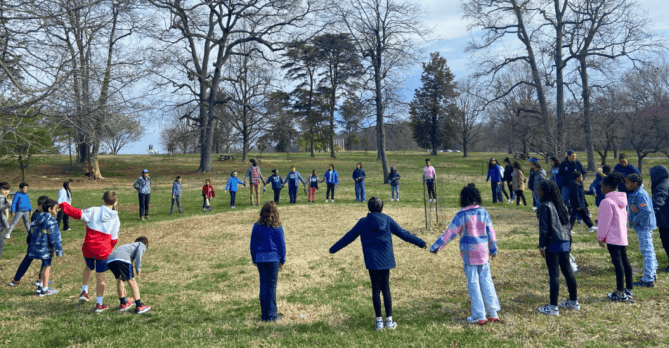
Each year we’re proud to team up with the Garden Club of America to help promote their $7,500 scholarship for urban and community forestry efforts. This not only provides needed funding for researchers but also showcases the commitment to data-backed forestry efforts to further our field. The Urban Forestry Fellowship aims to advance the field of urban forestry and encourages students to study the planning, management, horticulture, and ecology of urban forests as well as the effect of healthy urban forests on people and the environment. Plus, it’s just plain inspiring to read about these students and their work!
We encourage anyone in graduate school studying anything loosely related to urban forestry to apply, but sometimes when you’re in the midst of grad school that can be hard to visualize. So, we decided to go back to the beginning and ask the very first Urban Forestry Fellowship recipient, Kelby Fite! Now at Bartlett Tree Experts, when we were coordinating a time to chat, he realized he hired another Urban Forestry Fellowship recipient, Chris Riley! We chatted with both of them to hear more about their research, what they’re up to now, and what advice they have for potential applicants.
Casey Trees (CT): Before we dive into a scholarship discussion, it would be helpful for our readers, and me, to hear more about how you got to where you are now. So, an anti-climactic start to this interview, but, tell me about yourself.
Kelby Fite (KF): My interest in plants etc., started pretty early. I grew up working part-time in the horticulture industry, working in lawn and landscape maintenance and at nurseries, and part-time going to school. At a certain point, I needed to “figure out” what to do and ultimately went into horticulture for undergrad. I continued on that path with a Masters in Plant Pathology which led me to work for Bartlett in their diagnostic clinic. I worked there for a few years but could tell it wasn’t exactly what I wanted to do for the rest of my life. Thankfully I jumped at an opportunity to go back to school for my Ph.D., which truly opened the door for my career path in research and technical support. I received the first Urban Forestry Fellowship when I was completing my research at Clemson and once I finished school, I came back to Bartlett full time from a research perspective.
Chris Riley (CR): I’m actually from your neck of woods – I grew up in Silver Spring and went to undergrad at the University of Maryland. My degree was in environmental science and policy, but truly I was interested in work where I could be outside. Through my mentor, I fell into the entomology unit doing research in managed ornamental scenarios. I had a feeling at that point that I would pursue graduate studies but didn’t know what that would look like. Growing up outside DC I wanted to work in landscapes where people lived and worked, not necessarily in agricultural scenarios. I ended up doing my Ph.D. research looking at the ecology of shrinking cities and how to manage them with limited resources. The ecology and plant interactions of blighted areas in cities introduced me to the world of urban forestry, where I heard of the fellowship.
CT: One of my favorite things is hearing all the different ways people heard about urban forestry – the options are limitless! So now that we know how you got to where you are, can you describe what it is you do now?
KF: I, like a lot of people I think, didn’t set out to be involved in arboriculture and urban forestry. Truth be told I didn’t know this field existed as an undergrad. It wasn’t until a lab session during school where Bartlett did a demo that I even realized it was a career path. That being said, I’m glad I stumbled into it. The short answer is I work at Bartlett Tree Experts, specifically in the Bartlett Tree Research Lab. As a whole we research any and all aspects of arboriculture: entomology, soil pathology, pruning research, and more. For me personally, I fill niches that no one else wants to research – topics like invasives plant management and urban soils
CR: I actually met Kelby through my research, so I knew of him and what he did at Bartlett. He eventually hired me to work at the Tree Research Lab and now I focus mainly on the entomological and urban ecology side.
CT: Quick side note, Kelby did you know that Chris was an Urban Forestry Fellowship recipient when you hired him?
KF: I didn’t know he was a recipient, but to be fair he didn’t bring it up! It wasn’t until you reached out about the scholarship that I checked out the website and saw the list of award winners and recognized Chris’ name.
CR, laughing: Although Kelby won’t let me forget he was a (and maybe the only) two-time recipient!
CT: Ok, back to it. Tell us what you knew, if anything, about the Fellowship before applying.
CR: I was vaguely aware of it but given my entomological focus I hadn’t really heard much of GCA. I remember being surprised and impressed to see that there were organizations and funding willing to support entomological stuff in a context of urban forest. A lot of students, understandably, are hungry for research funding, so it’s awesome that this Fellowship is dedicated almost exclusively to funding graduate school level research. Plus, that’s an attractive thing to me, at least, about the definition of urban forestry for this Fellowship – it’s almost endless.
KF: As the first recipient I wasn’t familiar with this Fellowship – a professor tipped me off thankfully. Like Chris mentioned, this opportunity is unique because there is less focus on hard and fast urban forestry.
CT: Any advice for potential applicants?
KF: Just try it! Just apply to it. Urban forestry means so many different things and by all means, any funding is helpful, so don’t rule yourself out just because you don’t think your research fits neatly into a supposed urban forestry box.
CR: I’ll echo that sentiment. I even joke within the entomology circles that I’m a part of that I’m not even really in their department! It’s truly an interdisciplinary field and there are so many different ways of approaching urban forestry – what’s the harm in trying?
CT: Thanks so much for your time, it’s always a joy to connect with other urban forestry folks. Any last thoughts to share?
KF: Not really, but I’d like to say that I think it’s a cool fellowship that fills a niche that is needed. Since there’s not a plethora of urban forestry-related funding we’ve had to self-fund a lot of research at Bartlett because there’s not much available. So, I’m thankful and appreciative of fellowship for its assistance to us and the industry as a whole.
CR: We talked about the endless number of perspectives in the field, so I’d love to hear from other cohort members to hear what they’re doing and see where they are now. It’s always a little challenging to visualize career paths and options when you don’t know what’s out there – without connecting to Kelby and others during my research I’m not sure I’d have learned about this field. So, I’m thankful to them and hope others can connect with our field.
Kelby Fite, Ph.D., VP & Director at Bartlett Tree Experts, works out of the Bartlett Tree Research Lab. in 2006, he was the inaugural recipient of The Garden Club of America Zone VI Fellowship in Urban Forestry for his research at Clemson University studying the benefits of several practices for ameliorating urban soil conditions and enhancing urban tree performance. The following year he was awarded the Fellowship again.
Chris Riley, Ph.D., is an Entomologist at Bartlett Tree Experts at the Bartlett Tree Research Lab. In 2016 he was awarded The Garden Club of America Zone VI Fellowship in Urban Forestry for his project titled, “Just how Valuable are Exotic Trees?” that looked at the most common native and exotic tree species in order to better understand their ecological role within the broader urban ecosystem.

